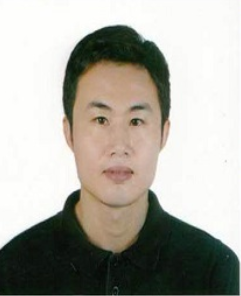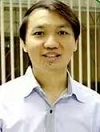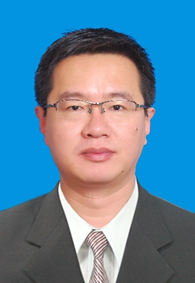Alexander G. Ramm was born in Russia, emigrated to USA in 1979 and is a US citizen. He is Professor Emeritus of Mathematics with broad interests in analysis, scattering theory, inverse problems, theoretical physics, engineering, signal estimation, tomography, theoretical numerical analysis and applied mathematics. He is an author of 718 research papers, 20 research monographs and an editor of 3 books. He has lectured at many Universities throughout the world, gave more than 150 invited and plenary talks at various Conferences and had supervised 11 Ph.D students. He was Fulbright Research Professor in Israel and Ukraine; distinguished visiting professor in Mexico and Egypt; Mercator Professor in Germany; Research Professor in France; invited plenary speaker at the 7-th PACOM; he won Khwarizmi international award in 2004 and received other honors. A.G.Ramm was the first to prove uniqueness of the solution to inverse scattering problems with fixed-energy scattering data; the first to prove uniqueness of the solution to inverse scattering problems with non-over-determined scattering data and the first to study inverse scattering problems with under-determined scattering data. He studied inverse scattering problems for potential scattering and for scattering by obstacles. He solved many specific inverse problems and developed new methods and ideas in the area of inverse scattering problems. He introduced the notion of Property C for a pair of differential operators and applied Property C for one-dimensional and multi-dimensional inverse scattering problems. A. G. Ramm solved many-body wave scattering problem when the bodies are small particles of arbitrary shapes, assuming that a much less than d and d is much less that λ, where a is the characteristic size of the particles, d is the minimal distance between neighboring particles, and λ is the wavelength in the material in which the small particles are embedded. Multiple scattering is essential under these assumptions. He used this theory to give a recipe for creating materials with a desired refraction coefficient and materials with a desired wave-focusing property. These results attracted attention of the scientists working in nanotechnology. A. G. Ramm gave formulas for the scattering amplitude for scalar and electromagnetic waves by small bodies of arbitrary shapes and analytical formulas for the polarizability tensors for these bodies. A. G. Ramm gave a solution to the Pompeiu problem, proved the Schiffer’s conjecture and gave many results about symmetry problems for PDE, including first symmetry results in harmonic analysis. A. G. Ramm has developed the Dynamical Systems Method (DSM) for solving linear and nonlinear operator equations, especially ill-posed. These results were used numerically and demonstrated practical efficiency of the DSM. A. G. Ramm developed random fields estimation theory for a wide class of random fields. A. G. Ramm has developed a theory of convolution equations with hyper-singular integrals and solved analytically integral equations with hyper-singular kernels. These results he applied to the study of the NSP (Navier-Stokes problem). As a result, he solved the millennium problem concerning the Navier-Stokes equations. A. G. Ramm formulated and proved the NSP paradox which shows the contradictory nature of the NSP and the non-existence of its solution on all times for the initial data not identically equal to zero and the force equal to zero. A. G. Ramm has introduced a wide class of domains with non-compact boundaries. He studied the spectral properties of the Schr¨ odinger operators in this class of such domains and gave suffient conditions for the absence of eigenvalues on the continuous spectrum of these operators. A. G. Ramm developed the theory of local, pseudolocal and geometrical tomography. He has proved a variety of the results concerning singularities of the Radon transform and developed multidimensional algorithms for finding discontinuities of signals from noisy discrete data.

| Prof. Yajun Liu South China University of Technology, China Research Interests: Digital signal processing technology and its application in mechanical systems (such as hydraulic System for Energy Saving.); Intelligence control and Manufacturing Engineering | Prof. Yajun Liu is a full professor in the Professor in the School of Mechanical and Automotive Engineering, South China University of Technology (2016-at pressent). His research interests include Digital signal processing technology and its application in mechanical systems (such as hydraulic System for Energy Saving.); Intelligence control and Manufacturing Engineering. Moreover, Prof. Yajun Liu has published more than 150 papers in Journals and proceedings of international conferences. 35 patents on Mechanical System design and manufacturing.

| Prof. Quanxin Zhu School of Mathematics and Statistics, Hunan Normal University, China Research Interests: stability and control theory and application research of Markov processes and stochastic nonlinear systems, and has made a series of important progress
| Professor Qunxin Zhu, a second-grade professor and distinguished Xiaoxiang Scholar at Hunan Normal University, serves as a doctoral supervisor and is recognized as an expert with a special government allowance from the State Council. He holds prestigious titles including Hunan Science and Technology Innovation Leader, Distinguished Furong Scholar Professor of Hunan, and Senior Research Scholar of the Alexander von Humboldt Foundation in Germany. Dr. Zhu also occupies key positions such as Deputy Director of the Key Laboratory of Computational and Stochastic Mathematics under the Ministry of Education and Director of the Hunan Provincial University Key Laboratory for Control and Optimization of Complex Systems. Additionally, he is a senior member of both IEEE and the Chinese Society of Automation. Zhu's research focuses on the stability and control theory and applications of Markov processes and stochastic nonlinear systems, where he has achieved significant advancements. His contributions have been published in over 200 SCI-indexed papers in top international journals in the field of Control, including Automatica, IEEE Transactions on Automatic Control, and SIAM Journal on Control and Optimization. Among his accolades are the First Prize of the Hunan Natural Science Award (as the lead recipient), the First Prize of the Jiangsu University Natural Science Award (as the lead recipient), and recognition as one of the World's Top Cited Scholars for six consecutive years from 2018 to 2023. In 2024, he was listed among the world's top 0.05% scholars and has been included in the world's top 2% scientists list for five consecutive years from 2020 to 2024. He was ranked in the top ten of Elsevier's List of Highly Cited Scholars in China from 2014 to 2023. Other notable awards include the "Youth Science and Technology Award" from the China Operations Research Society, the "100 Most Internationally Influential Academic Papers" in China, and the Jiangsu Provincial Mathematics Achievement Award. Zhu has led five National Natural Science Foundation projects and ten provincial and ministerial-level projects. He currently serves as the executive director of the Chinese Society of Engineering Probability and Statistics, director of the Chinese Society of Probability and Statistics, and holds memberships in various committees, including the Control Theory Committee of the Chinese Society of Automation, the System and Control Mathematics Committee of the Chinese Society of Industrial and Applied Mathematics, the Adaptive Dynamic Programming and Reinforcement Learning Committee of the Chinese Society of Automation, and the Stochastic Systems and Control Group of China TCCT. Furthermore, he is an Associate Editor or Editorial Board Member for six international SCI journals, including IEEE Transactions on Automation Science and Engineering.

| Prof. Grienggrai Rajchakit Faculty of Science, Maejo University Chiang Mai, Thailand Research Interests: Lyapunov methods,asymptotic stability,delays,time-varying systems,fuzzy control,linear matrix inequalities,neural nets,robust control,synchronisation,uncertain systems,closed loop systems,complex networks,control system synthesis,fuzzy
| G. Rajchakit was born in 1981. He received the B.S. degree in mathematics from Thammasat University, Bangkok, Thailand, in 2003, the M.S. degree in applied mathematics from Chiang Mai University, Chiang Mai, Thailand, in 2005, and the Ph.D. degree in applied mathematics from the King Mongkut’s University of Technology Thonburi, Bangkok, in the field of mathematics with specialized area of stability and control of neural networks. He is currently working as a Lecturer with the Department of Mathematics, Faculty of Science, Maejo University, Chiang Mai. He has authored or coauthored more than 146 research articles in various SCI journals. His research interests include complex-valued NNs, complex dynamical networks, control theory, stability analysis, sampled-data control, multi-agent systems, T-S fuzzy theory, and cryptography. He was a recipient of the Thailand Frontier Author Award by the Thomson Reuters Web of Science in 2016 and the TRF-OHEC-Scopus Researcher Award by the Thailand Research Fund (TRF), Office of the Higher Education Commission (OHEC) and Scopus in 2016. He also serves as a reviewer for various SCI journals.(Based on document published on 24 February 2022). |
|
|
| |
| Prof. Javad Abolfazli Esfahani Department of Mechanical Engineering, Faculty of Engineering, Ferdowsi University of Mashhad, Mashhad, Iran
Engineering College, Lishui University, Lishui, China
| Title: Lattice Boltzmann Simulation of Thermal Energy Storage Using a PCM Block Placed in a Volumetric Radiation and Natural Convection of a Nanofluid Abstract. This study utilizes the Lattice Boltzmann Method (LBM) to simulate the melting process of a phase change material (PCM) under the combined influence of volumetric radiation and natural convection of a nanofluid. The interaction between combined heat transfer and a PCM block causes complex thermal behavior, which can be utilized to design high-performance thermal systems. To model the problem, all governing equations are solved using the LBM method. The nanofluid considered in this study is aluminum oxide, whose real radiative properties are included in the radiation transfer equation. The analysis considers varying Planck numbers (Pl = 0.01–1), nanofluid concentration (φ = 0.01–0.03%) and block size (χ = 25–75%) at two Rayleigh numbers (Ra = 104 and 105) to examine their effects on heat transfer and the thermal energy storage. The findings indicated that volumetric radiation substantially improves heat transfer, accelerating heat storage rates by over 30% and 50% at Rayleigh numbers of 10⁴ and 10⁵, respectively. Decreasing the Planck number from 1 to 0.01 enhances the influence of volumetric radiation, resulting in a substantial improvement in thermal performance. The increasing nanofluid concentration leads to the increased radiation scattering effects of the nanoparticles, which can attenuate the total heat transfer. A blockage effect due to increasing the block size to 75% can against circulation and reduce heat storage. These findings provide insights into controlling phase change through geometric and physical effects that are valuable for the design of advanced thermal energy storage systems. Keywords: Heat storage; LBM; PCM block, Volumetric radiation; Natural convection; Nanofluid.

| Dr. Xunli Shi
Deputy Director of the School of Mathematics and Science at Hebei GEO University, China
| Xunli Shi is the current Deputy Director of the School of Mathematics and Science at Hebei GEO University. He is a Master's thesis supervisor in applied mathematics and geochemistry. He obtained his Ph.D. from China University of Geosciences (Beijing). He has been engaged in interdisciplinary research combining mathematics, geology, and chemistry, with a primary focus on constructing geochemical thermodynamic models and phase equilibrium calculations. He has published over 30 papers in journals such as Chemical Geology, Acta Geologica Sinica, Journal of Petrology, and Computers & Applied Chemistry. He has also participated in multiple academic exchanges. He has hosted or participated in five National Natural Science Foundation projects, three Hebei Provincial Natural Science Foundation projects, and three projects under the Open Fund of National Key Laboratories, as well as one key scientific technology project and one youth project from Hebei higher education institutions. Title: A thermodynamic model for the solubilities of fluorite in water and selected electrolyte solutions Abstract. Unlike traditional solubility models that rely on the density or dielectric constant of water, a thermodynamic model of fluorite in water and various electrolyte solutions is developed based on the chemical potential of water, following the strategy of Shi et al. (2024). This model can be applied to calculate the fluorite solubility in water, as well as in aqueous single electrolyte solutions, including NaCl, KCl, CaCl2, MnF2, ZnF2, MgSO4, CaSO4, MnSO4, and ZnSO4. Additionally, the model can be used to calculate the fluorite solubility in aqueous double electrolyte solutions, including NaCl-CaCl2, MnF2-MnSO4, MgSO4-CaSO4, CaSO4-MnSO4, and CaSO4-ZnSO4. The overall average relative deviations for these systems are either close to or lower than the measurement uncertainties. The model can accurately reproduce most of the existing experimental data and reasonably predict the solubility trend in the T–P–x range without experimental data. The standard molar formation enthalpy and standard molar entropy of dissolved CaF2 (M(aq)) are calculated to be –2939.0115 kJ·mol–1 and 597.21 J·mol–1·K–1, respectively, based on this model. This model can be used to explain geological phenomena and address scale inhibition and corrosion prevention in industrial systems containing these electrolytes. Keywords: fluorite; solubility; model; aqueous solution; electrolyte
|
|
|
|
|
|
|


